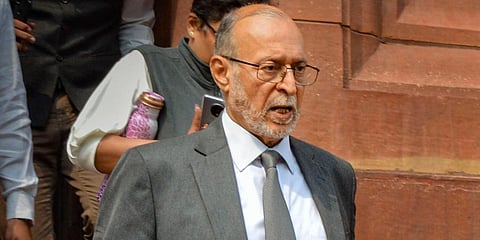

NEW DELHI: LT Governor (L-G) Anil Baijal on Wednesday said Delhi’s master plan 2041 will be notified this year and asserted that building a sustainable, inclusive, resilient, green and digital economy must take centre stage in the vision for the city’s development.
Addressing the CII Delhi State Annual Session 2021-22, he said for the first time provisions for night-time economy was included in the master plan, which is a “critical intervention” that can lead to several positive results.
“It can support economic activities that can thrive at night, such as cultural recreational activities, logistics, certain industries. This would also help in staggered work timings and therefore reduce congestion in streets,” he said.
The L-G said the Master Plan for Delhi 2041 is “comprehensive, yet a comprehensible document” that can be easily understood by a common man. It focuses on environmental sustainability, quality livability and economic and cultural vitality, Baijal said.
The Master Plan for Delhi (MPD) 2041 looks at addressing concerns such as affordable housing, pollution-free environment, inter-city mobility and transportation, water availability and supply and economic vitality with full involvement of the people, he added.
Creating a ‘24-hour city’ with a night-time economy, extensive transport infrastructure, affordable housing for all and a healthy environment to check unauthorised colonies and pollution are part of the guiding principles.
The draft was put forward in June 2021. Baijal said fostering a round-the-clock city will not happen overnight and will be achieved through an incremental process. “City-wide festivals that support nightlife would also be promoted. Over time, such activities will be scaled up to cover large parts of the city,” he said.
Master plan to set new boundaries
At the CII Delhi State Annual Session 2021-22, the L-G said that for the first time provisions for night-time economy was included in the master plan, which is a “critical intervention”